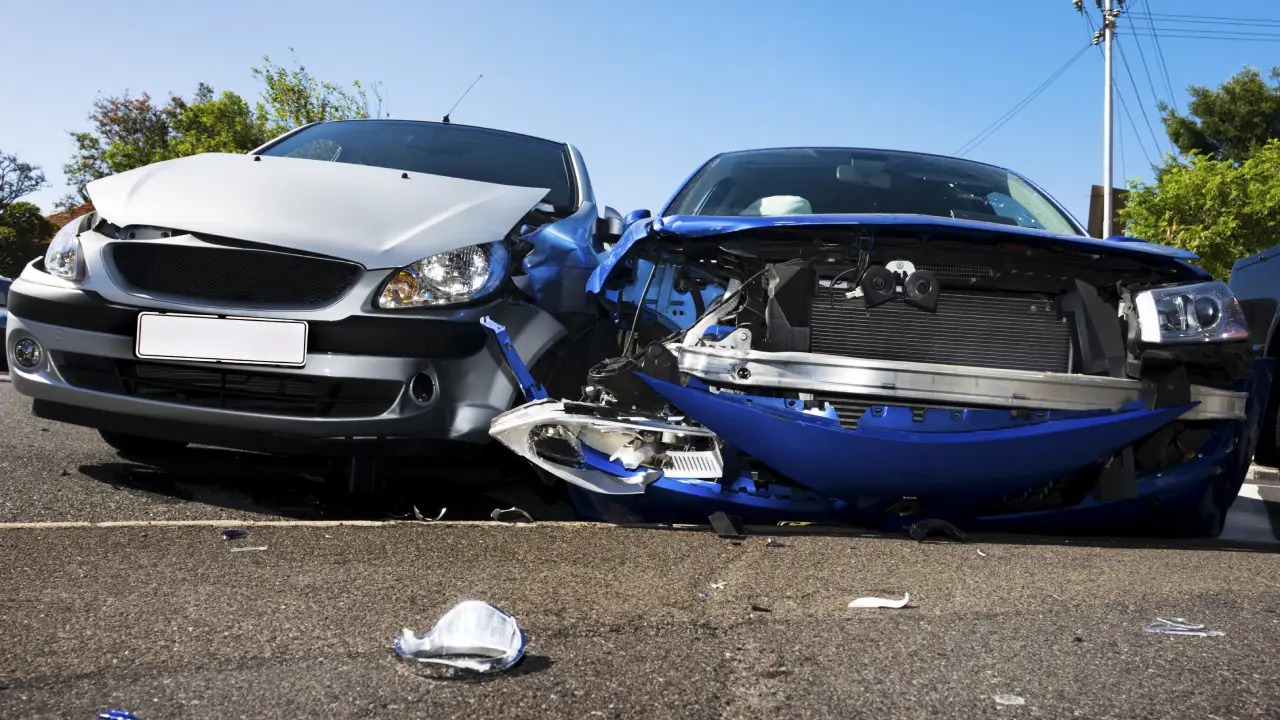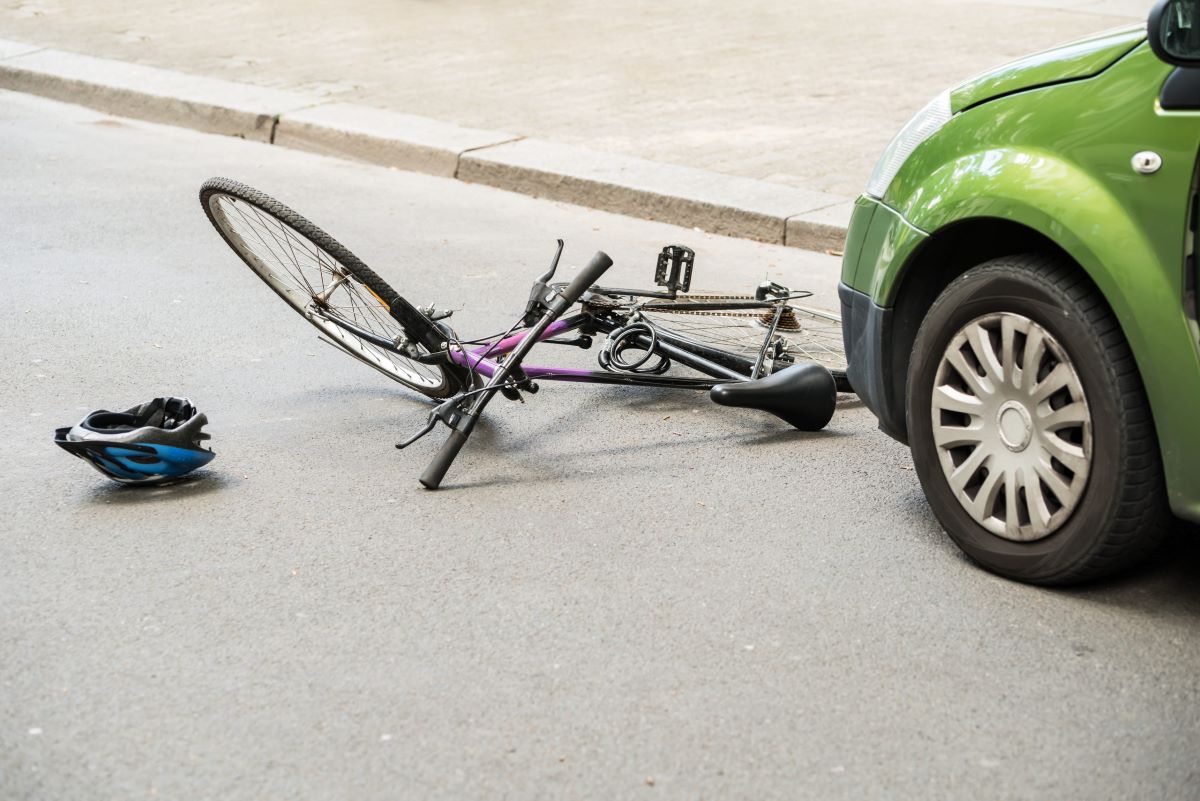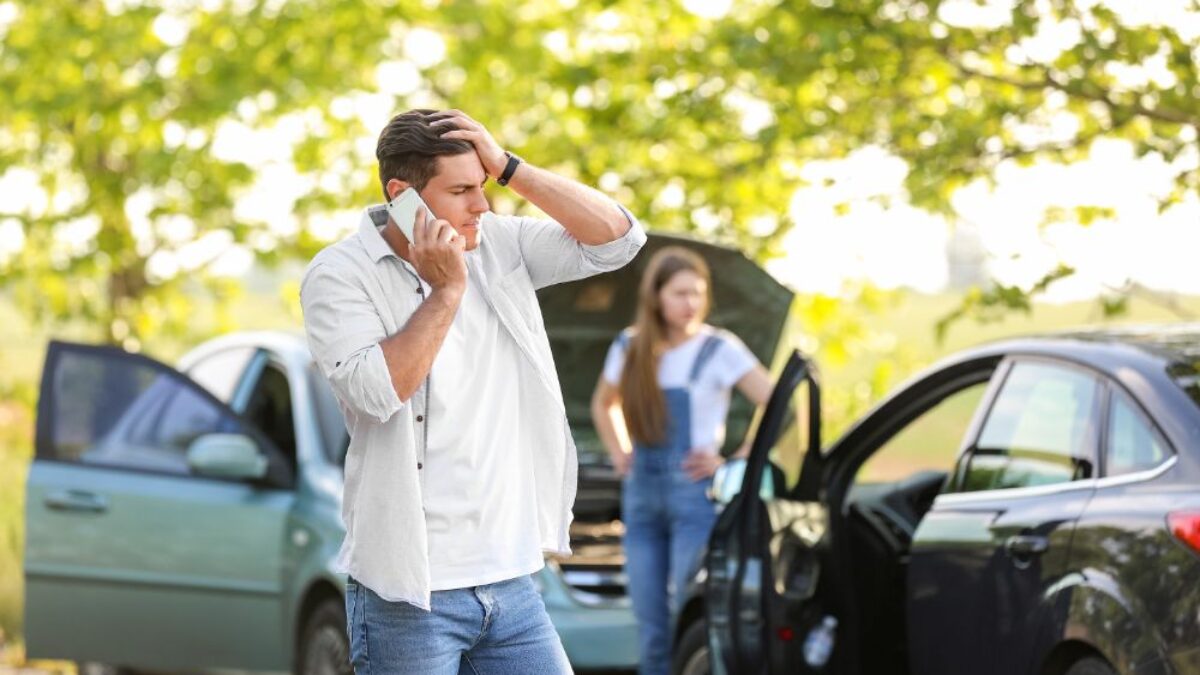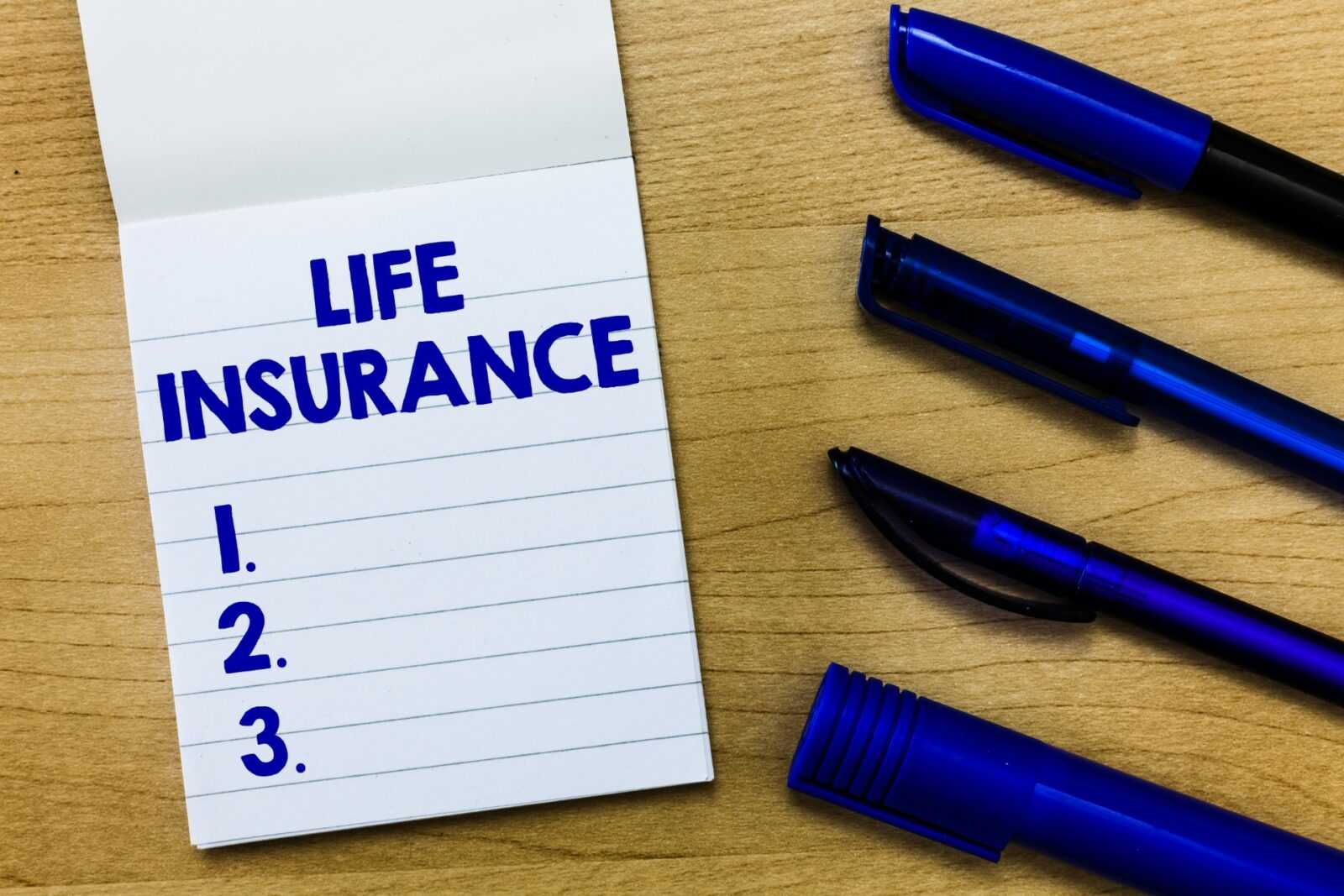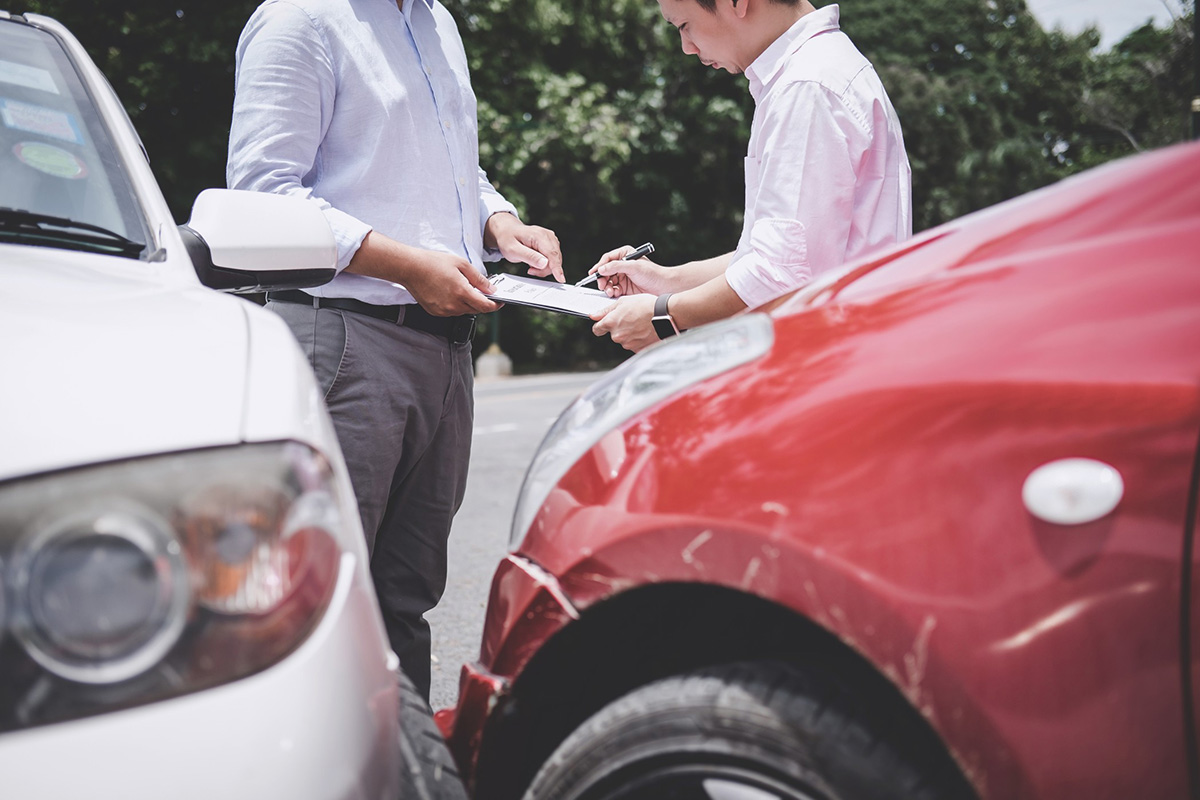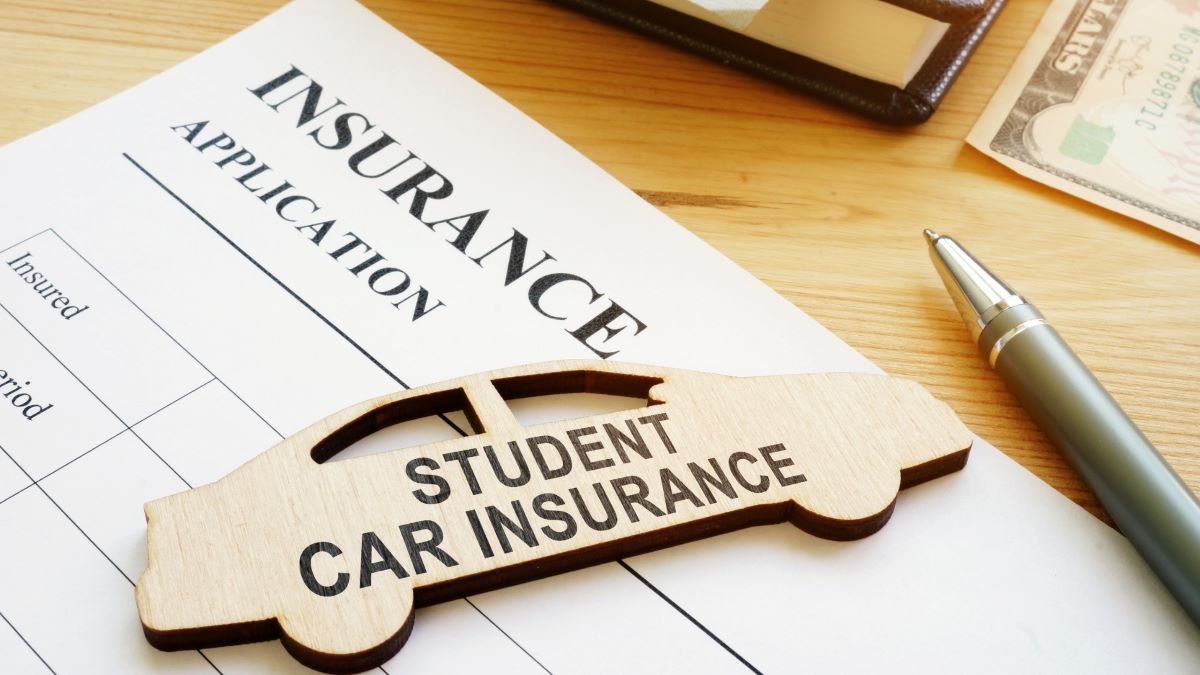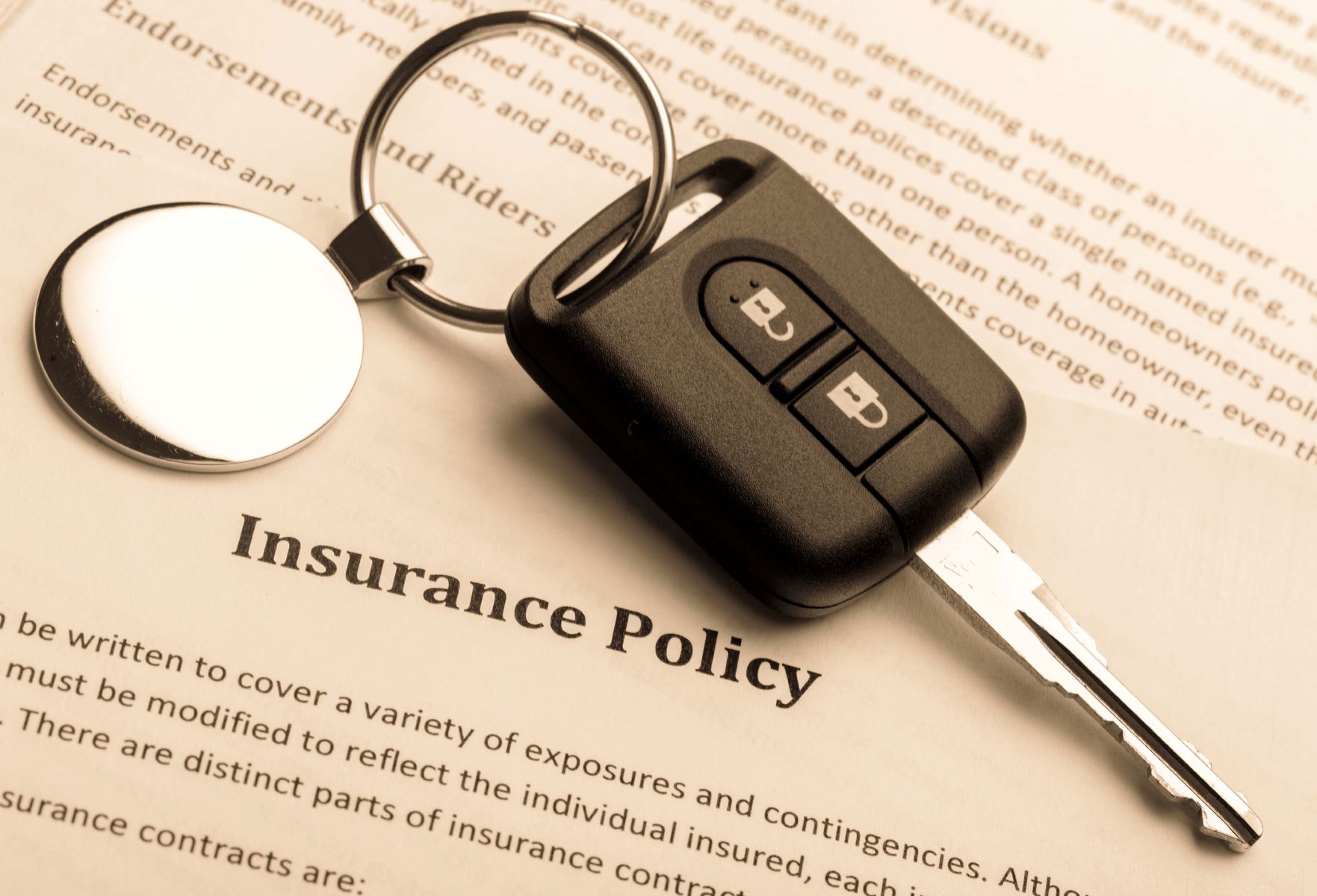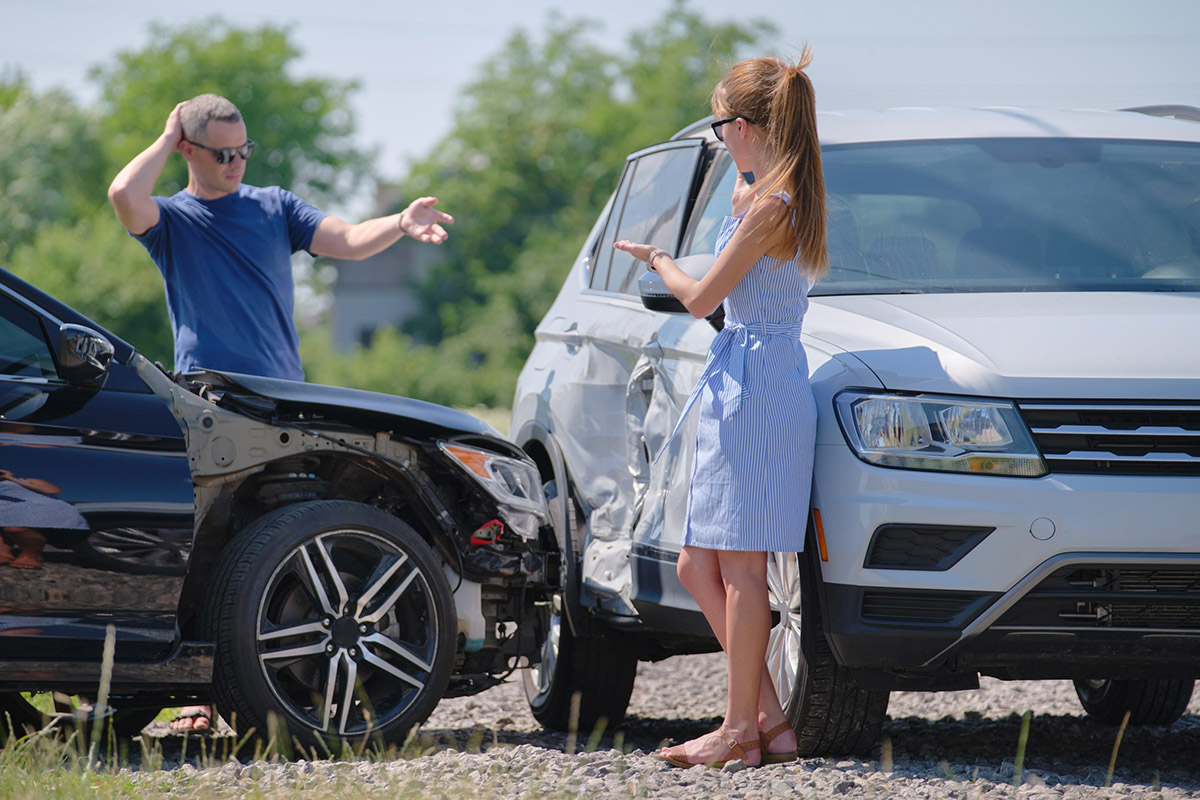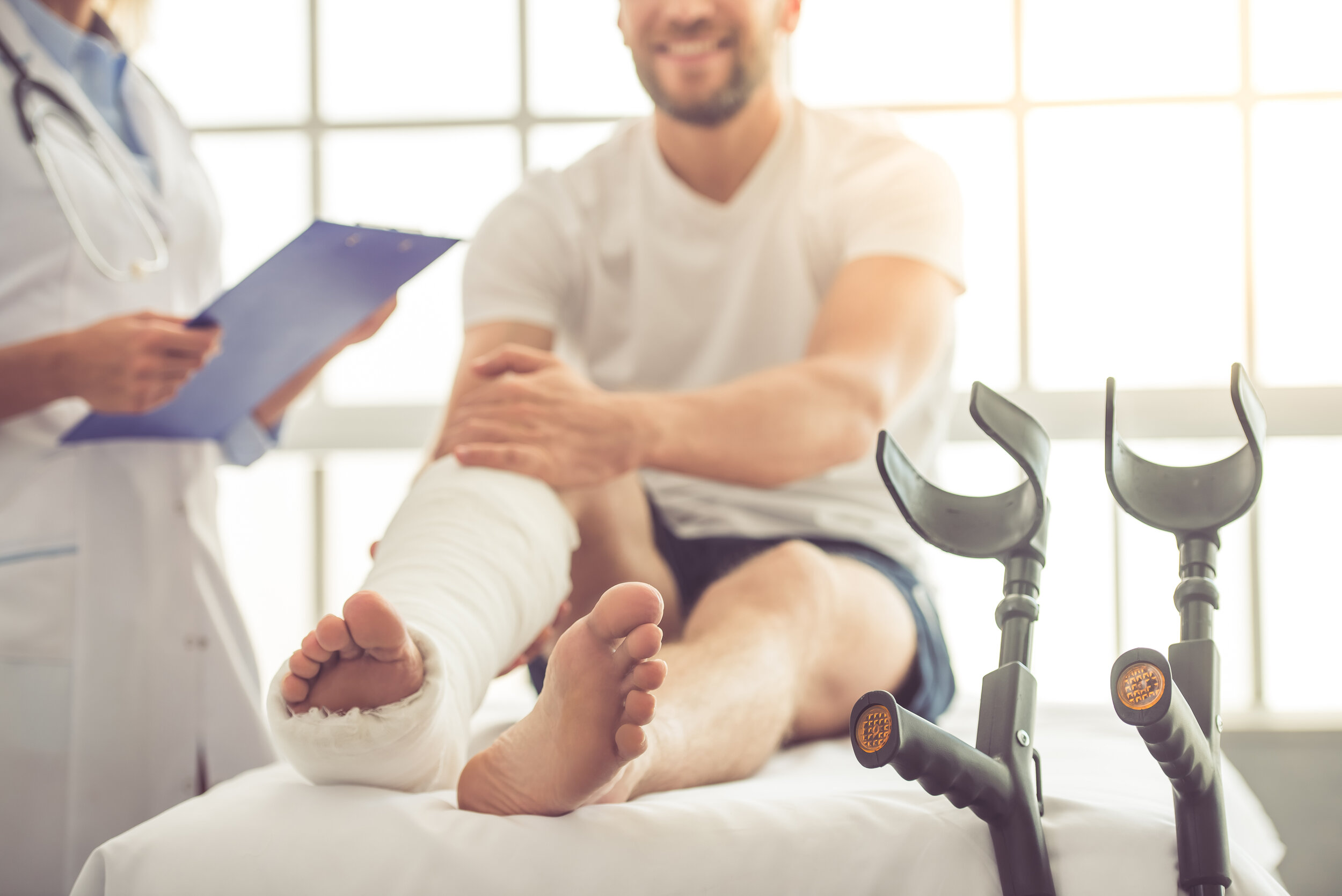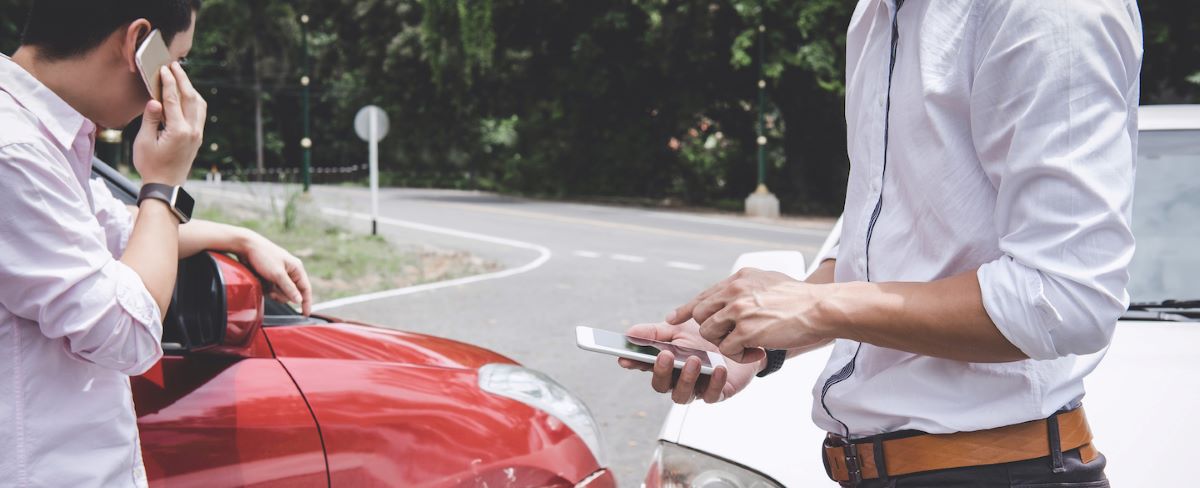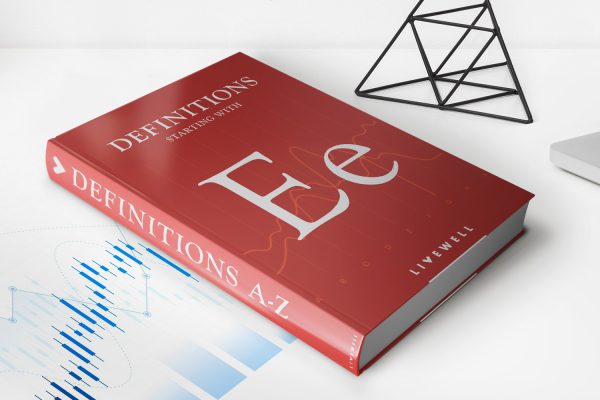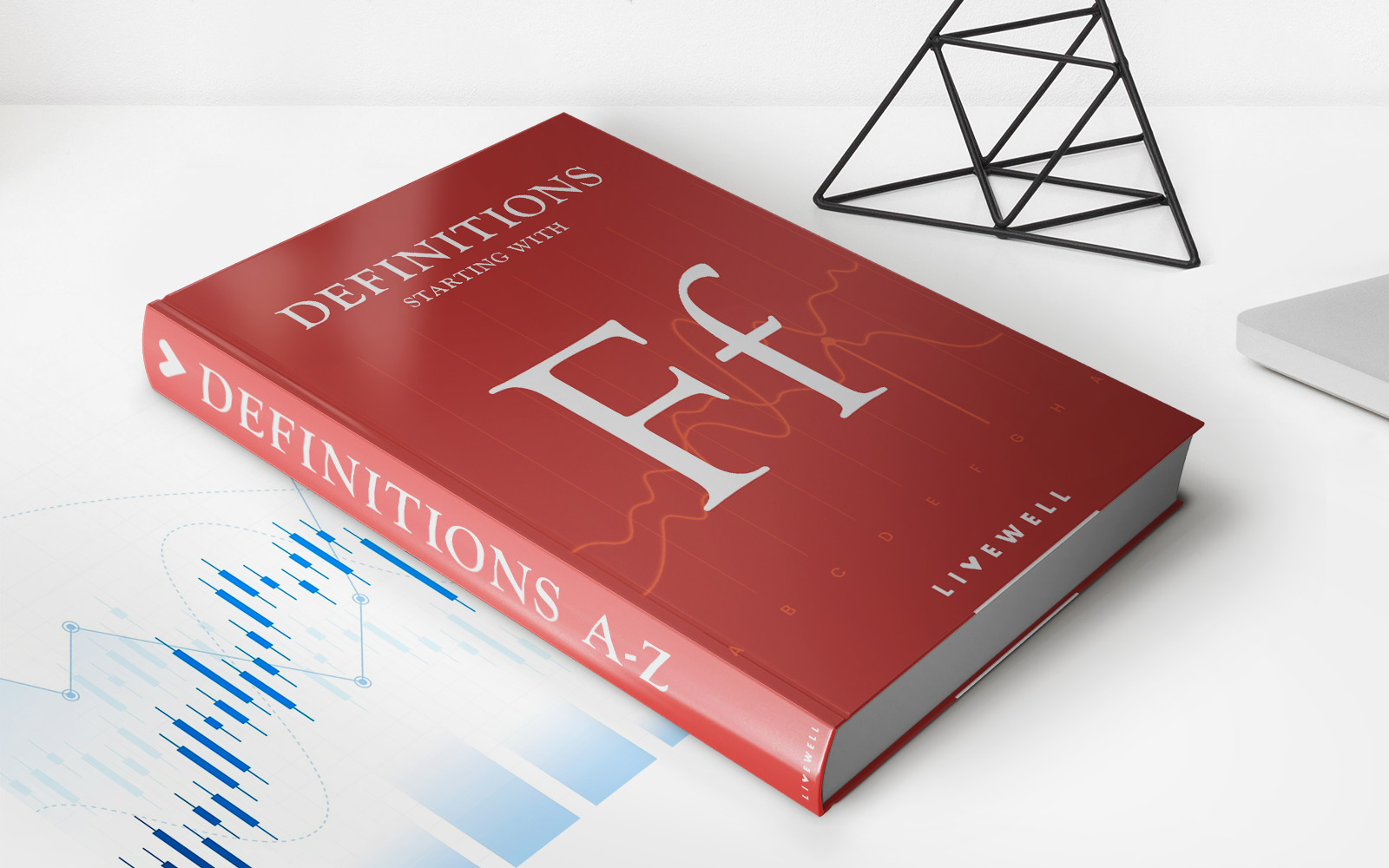Home>Finance>What Happens If The Person Not At Fault In An Accident Has No Insurance?
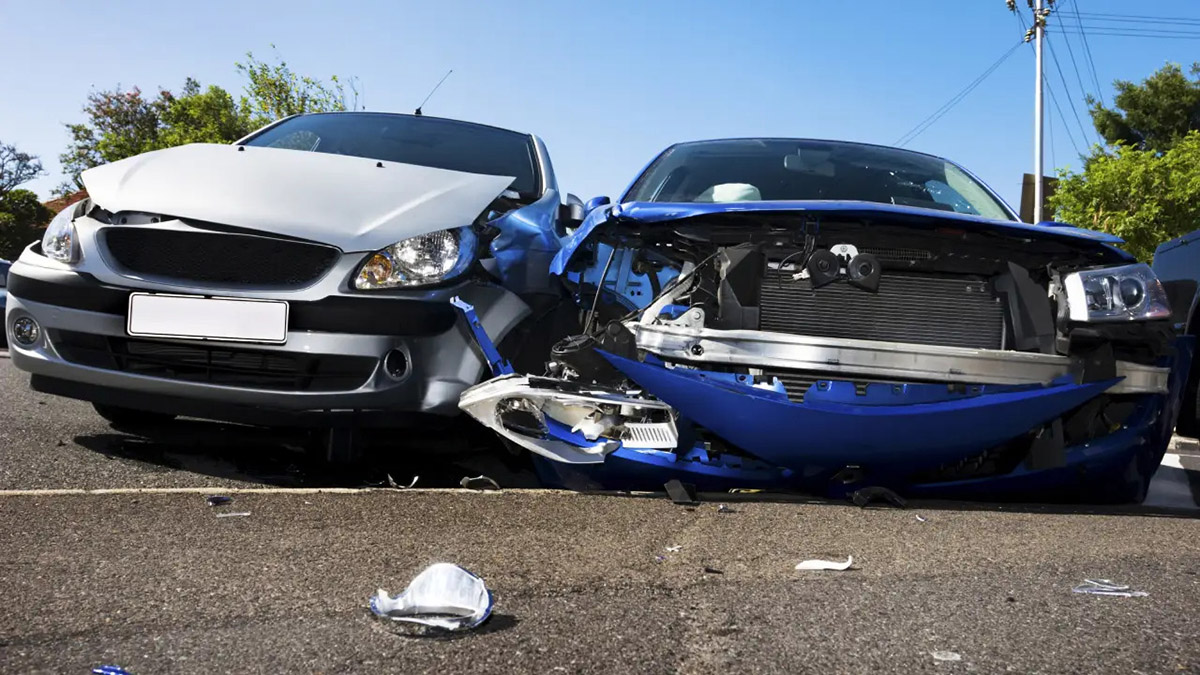

Finance
What Happens If The Person Not At Fault In An Accident Has No Insurance?
Published: November 15, 2023
Find out what happens when someone who is not at fault in an accident does not have insurance. Explore the financial implications of this unfortunate situation and learn how to protect yourself.
(Many of the links in this article redirect to a specific reviewed product. Your purchase of these products through affiliate links helps to generate commission for LiveWell, at no extra cost. Learn more)
Table of Contents
Introduction
Being involved in a car accident can be a distressing experience, especially when you are not at fault. Ideally, the at-fault driver’s insurance should cover any damages and medical expenses resulting from the accident. However, what happens if the person not at fault in an accident has no insurance? In such a scenario, understanding the legal and financial implications becomes crucial.
Before delving into the consequences faced by the uninsured victim, it is important to have a clear understanding of fault in an accident. In the eyes of the law, fault is typically determined based on negligence. Negligence refers to the failure to exercise reasonable care, resulting in harm or damage to others. The at-fault driver is usually held responsible for compensating the injured party.
When it comes to accidents, insurance plays a fundamental role in providing financial protection to both parties involved. Car insurance serves as a safeguard, covering medical expenses, property damage, and even legal costs in some cases. However, not everyone carries insurance, which can create significant complications in the aftermath of an accident.
Understanding Fault in an Accident
When determining fault in an accident, it is important to establish who was negligent and caused the collision. Negligence can take many forms, such as speeding, running a red light, distracted driving, or driving under the influence. The at-fault driver is the one who bears the responsibility for the damages and injuries resulting from the accident.
Fault can sometimes be clear-cut, especially in situations where one driver blatantly violates traffic rules or engages in reckless behavior. However, there are instances where fault is not immediately obvious and requires a thorough investigation. In such cases, law enforcement, insurance companies, and legal professionals may get involved to assess the evidence and determine liability.
It is important to note that fault can also be assigned to multiple parties. For example, if both drivers were partially negligent, the responsibility for damages and injuries may be divided based on the percentage of fault attributed to each party.
Establishing fault is not only crucial for insurance purposes but also for potential legal actions. If you are the victim of an accident and believe the other party was at fault, gathering evidence such as witness statements, photos, and police reports can significantly strengthen your case.
The Role of Insurance in an Accident
Insurance plays a critical role in protecting individuals involved in car accidents. It provides financial coverage for medical expenses, property damage, and liability for at-fault drivers. Here are the key types of insurance coverage that come into play:
1. Liability Insurance: Liability insurance covers the damages and injuries caused by an at-fault driver to the other party involved in the accident. It typically includes bodily injury liability and property damage liability. If you are not at fault in an accident and the at-fault driver carries liability insurance, their insurer should be responsible for compensating you for the damages and medical expenses.
2. Uninsured/Underinsured Motorist Coverage: This type of coverage is designed to protect you in the event that the at-fault driver does not have insurance or has insufficient coverage. If you carry uninsured/underinsured motorist coverage, your own insurance policy can step in to provide the necessary compensation for your losses.
3. Collision Coverage: Collision coverage protects your vehicle in the event of a collision, regardless of fault. If the at-fault driver’s insurance does not cover your vehicle damage, your collision coverage can help cover the repair costs subject to your deductible.
It is important to note that insurance policies and requirements vary by state, and not all drivers may have sufficient insurance coverage. This is where complications arise when an uninsured victim is involved in an accident with an at-fault driver who also lacks insurance coverage.
Consequences for the At-Fault Driver’s Insurance
When an accident occurs and the at-fault driver is insured, their insurance coverage should typically bear the responsibility for compensating the other party’s damages and injuries. However, if the at-fault driver does not have insurance, they may face several consequences:
1. Legal Penalties: Driving without insurance is a legal offense in most states. The at-fault driver may face fines, license suspension, and even potential misdemeanor charges, depending on the jurisdiction and the severity of the accident.
2. Personal Liability: Without insurance, the at-fault driver becomes personally liable for the damages and injuries they caused. This means that they may be required to pay out-of-pocket for medical expenses, property damage, and other associated costs.
3. Difficulty Obtaining Coverage in the Future: Being uninsured can make it challenging for the at-fault driver to secure insurance coverage in the future. Insurance companies may view them as high-risk individuals, which can result in higher premiums or even denials of coverage.
4. Civil Lawsuits: The uninsured at-fault driver may also face civil lawsuits from the injured party seeking compensation for their losses. Without insurance, this can significantly impact their financial situation and could potentially lead to seizure of assets or wage garnishment.
It is important to note that the specific consequences may vary depending on the jurisdiction and local laws. Consulting with a legal professional can provide further guidance on the legal implications for the uninsured at-fault driver.
Consequences for the Uninsured Victim
When an uninsured individual who is not at fault in an accident finds themselves in a collision with an uninsured at-fault driver, they may face several consequences:
1. Financial Burden: Without insurance, the uninsured victim may need to bear the financial burden of medical expenses, property damage, and other related costs out of pocket. This can be extremely challenging, especially if the injuries are severe or require ongoing medical treatment.
2. Limited Options for Compensation: Without insurance, the uninsured victim may have limited options for seeking compensation. While they can pursue a claim against the at-fault driver, it is unlikely that the driver will have the financial means to fully cover the damages. Additionally, the at-fault driver may face legal consequences that further complicate the ability to obtain compensation.
3. Difficulty in Pursuing Legal Actions: Legal actions, such as filing a personal injury lawsuit, may be more difficult for the uninsured victim. Without insurance coverage, it may be challenging to find legal representation or navigate the legal process effectively. This can hinder their chances of recovering proper compensation for their losses.
4. Potential Financial Instability: The financial impact of an accident can be significant for the uninsured victim. It may lead to medical debt, missed work, and even the loss of personal assets. It is crucial for the uninsured victim to seek financial assistance, explore payment plans, or discuss options with healthcare providers and creditors to mitigate the long-term implications.
If you find yourself as an uninsured victim in an accident, it is important to consult with legal professionals and explore all available options. They can help assess your situation, determine potential avenues for compensation, and guide you through the complex legal processes involved.
Potential Legal Actions for the Uninsured Victim
While being an uninsured victim in an accident can present significant challenges, there are potential legal actions that can be taken to seek compensation. Here are some options for uninsured victims:
1. Personal Injury Lawsuit: The uninsured victim can consider filing a personal injury lawsuit against the at-fault driver. This legal action seeks to hold the responsible party accountable for the damages and injuries caused. However, it is important to note that the at-fault driver’s ability to pay for compensation may be limited.
2. Seek Third-Party Liability: In certain situations, the uninsured victim may explore the possibility of holding additional parties liable for the accident and their resulting injuries. For example, if a defective auto part contributed to the accident, the manufacturer or a maintenance provider may be held partially responsible.
3. Negotiate a Settlement: The uninsured victim can attempt to negotiate a settlement with the at-fault driver or their insurance company. While this may not result in full compensation, it can provide some financial relief without the need for a lengthy legal process.
4. Utilize Mediation or Arbitration: Mediation and arbitration are alternative dispute resolution methods that can offer a more expedient and cost-effective way to resolve the dispute. In these processes, an impartial third party helps facilitate negotiations between the parties involved and reach a mutually acceptable resolution.
5. Explore Government Assistance: Depending on the jurisdiction and the circumstances, the uninsured victim may qualify for certain government assistance programs aimed at providing support to those injured in accidents. These programs may help cover medical expenses or provide other forms of financial assistance.
6. Consult with Legal Professionals: It is crucial for the uninsured victim to consult with experienced legal professionals who can evaluate the case, determine the best course of action, and provide guidance throughout the legal process.
It is important to note that the effectiveness and feasibility of these legal actions may vary depending on the specific circumstances of the case. Seeking legal advice from professionals with experience in personal injury law can help the uninsured victim make informed decisions and navigate the complexities of the legal system.
Other Options for Compensation
While being an uninsured victim in an accident can pose significant challenges, there may be other options available to seek compensation for damages and injuries:
1. Health Insurance Coverage: If the uninsured victim has health insurance coverage, it can help cover medical expenses resulting from the accident. It is important to review the policy terms and conditions to understand the extent of coverage and any limitations.
2. Medical Payments Coverage: Some uninsured victims may have medical payments coverage as part of their auto insurance policy. This coverage can provide compensation for medical expenses regardless of fault. Even if the uninsured victim was not at fault, they may be able to tap into this coverage to help with their medical costs.
3. State-Run Compensation Programs: In some states, there are compensation programs specifically designed to provide financial assistance to uninsured victims involved in accidents. These programs may offer limited coverage for medical expenses or other related costs.
4. Crowdfunding: The uninsured victim may consider launching a crowdfunding campaign to actively seek financial support from friends, family, or even strangers who sympathize with their situation. This can help alleviate some of the financial burden and cover medical expenses or other related costs.
5. Payment Plans and Negotiations: The uninsured victim can discuss payment plans or negotiate with medical providers, auto repair shops, and other parties involved to potentially reduce and arrange a manageable payment schedule for the incurred expenses.
6. Nonprofit Organizations and Community Resources: There may be nonprofit organizations or community resources that provide assistance to uninsured victims in obtaining medical treatment or accessing necessary support services. Researching local resources can help uncover additional options for compensation or relief.
It is important for the uninsured victim to explore these alternative options and consider seeking professional guidance to determine the best course of action for their specific circumstances. Consulting with legal and financial professionals can provide valuable insights and assistance in navigating these avenues for compensation.
Conclusion
Being involved in an accident when you are not at fault is already a challenging situation, but when you do not have insurance coverage, the consequences can be even more formidable. Understanding the legal and financial implications of being an uninsured victim is crucial to navigate through these difficult circumstances.
While the at-fault driver’s insurance is typically responsible for compensating the injured party, things become more complicated if the at-fault driver is also uninsured. In such cases, the uninsured victim may face financial burdens and limited options for compensation.
However, there are potential legal actions and alternative avenues for compensation that the uninsured victim can consider. Pursuing a personal injury lawsuit, seeking third-party liability, negotiating a settlement, or exploring government assistance programs are potential options that may provide some relief.
Additionally, utilizing health insurance coverage, medical payments coverage, crowdfunding, payment plans, and community resources can help alleviate the financial burden faced by the uninsured victim.
It is crucial for the uninsured victim to seek professional guidance from legal and financial experts who can provide insights, assess the options available, and help navigate the complex process of seeking compensation.
Remember, prevention is always better than dealing with the aftermath of an accident. Having proper insurance coverage ensures financial protection in case of an unexpected incident. It is essential to maintain valid insurance and comply with your local laws to safeguard yourself and others on the road.
While no one wants to be involved in a car accident, being knowledgeable about your rights and options can help protect your interests and ensure you receive the compensation you deserve, even if you are an uninsured victim.
